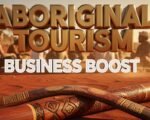Juneteenth isn’t just a commemoration of freedom. It’s a reminder of what freedom really costs, and what it still owes. One hundred and sixty years after the last enslaved people were freed in Texas, the economic promise of emancipation remains elusive for many Black Americans. But out of that injustice has grown a business legacy—one built on grit, creativity, and fierce independence.
Freedom Without Fortune
When the Union army arrived in Galveston on June 19, 1865, they brought news of the Emancipation Proclamation—signed two and a half years earlier. Four million people were free. But free to what? The federal government offered no reparations, no land, and no access to the economic machinery that powered white wealth accumulation.
Families freed from bondage had to figure it out alone. Within a generation, they had started banks, built universities, opened newspapers. Entire neighborhoods—like Black Wall Street in Tulsa—stood as symbols of what economic independence could look like. Then, with shocking precision, those gains were erased.
From Reconstruction to Redlining
Jim Crow didn’t just enforce segregation—it gutted opportunity. Discriminatory lending practices kept Black families from homeownership. Black veterans were systematically excluded from GI Bill benefits. The Homestead Act enriched white settlers while Black farmers were turned away.
In 2008, the subprime mortgage crisis wiped out over $200 billion in Black and Latino wealth. Researchers now refer to it as the most devastating loss of wealth for communities of color in modern U.S. history.

The numbers are staggering:
- The typical Black family holds around $45,000 in wealth compared to $285,000 for white families.
- Black founders still receive less than 1% of U.S. venture capital funding.
- 83% of VC partners are white men, creating systemic bias in who gets funded.
The Blueprint from Madam Walker to Rihanna
Sarah Breedlove, better known as Madam C.J. Walker, was born just after emancipation. She built an empire in the early 1900s selling haircare products tailored for Black women. She trained over 20,000 sales agents and paid them wages that beat domestic work. She owned her supply chain, her schools, and her distribution model. Walker didn’t just make money—she built infrastructure.
That legacy echoes loudly today.
Beyoncé’s Parkwood and CÉCRED. Rihanna’s Fenty empire. Issa Rae’s media brand. These aren’t just celebrity ventures. They’re vertically integrated, self-owned ecosystems.
Fenty Beauty, for instance, pulled in $100 million in 40 days and eventually hit a $2.8 billion valuation. Rihanna retained a 50% stake. Her secret? She controlled both product and story. Partnering with Sephora for placement, keeping her margins through Kendo Brands, and building a community-first narrative.
Beyond Representation: Ownership is the Real Power
Today’s Black founders aren’t just looking to participate. They want control. And they’re building it piece by piece:
- Harlem Capital and Backstage Capital are rewriting the rules of venture equity.
- The Liberated Capital Fund is deploying $20 million in reparative investments.
- Issa Rae reinvests media profits directly into community creators.
- Aurora James’ Fifteen Percent Pledge has rerouted $14 billion in revenue toward Black-owned businesses.
A recent McKinsey study backs up the logic: companies with diverse leadership outperform their peers financially. Inclusion isn’t charity. It’s smart business.
From Liberation to Leverage
Juneteenth was about freedom, but freedom without capital is a trap. Madam Walker got that. So do today’s innovators. The arc from 1865 to 2025 is jagged, but clear.
What started with liberated people trying to build from nothing has grown into a movement of Black wealth that prioritizes control, equity, and future-proofing.
The unfinished business of emancipation isn’t just policy. It’s ownership. And that’s the business of freedom.








